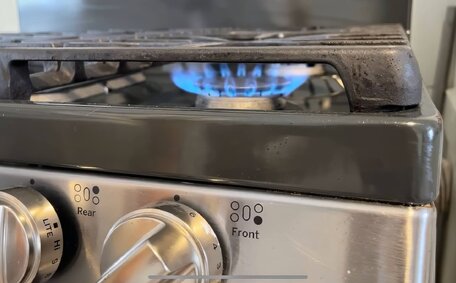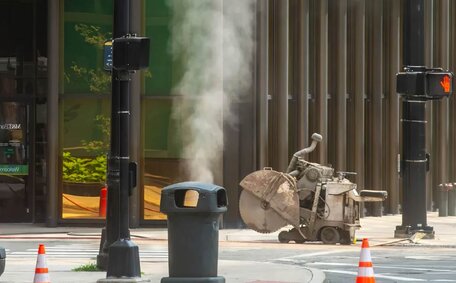What causes smelly drains?
Home drainage systems may develop odour issues due to a range of factors. Buildup of organic matter like food scraps, soap scum, hair, and oils are frequent culprits in your smelly drain. Decomposing debris in drain pipes and traps often leads to unpleasant odours. Home drainage systems may develop odour issues due to a range of factors.
Specific sources that homeowners can tackle, Odours in drains commonly stem from blockages and foul-smelling pipes, often due to:
- Rotting food residue, including fats, oils, and scraps, leads to decaying organic material accumulating in your drains.
- Soap scum and hair residue - Bathing products and detergents mingling with hair can rot, spreading odours.
- Hair accumulation - Large amounts of hair in pipes can cause blockages and foster bacteria growth.
- Defective plumbing - Cracked pipes or compromised sewer gas traps may admit odours akin to rotten eggs into your living space.
- Clogged sewer vents hinder adequate ventilation, allowing harmful gases to accumulate and infiltrate your home.
- Sewer gas backflow - Issues with the sewer line can lead to gas back-up, allowing odours to escape through drains.
Identifying the source of kitchen and bathroom odours is essential to effectively eliminate drain smells. Tips include regularly applying a vinegar baking soda mix or boiling water to clear debris when addressing smelly drains. In severe cases like persistent kitchen sink odours, consult a plumber to clean pipes and address blockages, minimising the risk of sewage smells from a defective sewer gas trap.
Common culprits behind drain odors
Below are common causes of drain odours in residential plumbing systems:
- Buildup of food particles, fats, and oils mixed with hair and soap scum in sink drains can emit pungent odours as they decompose.
- Hair and soap scum build-up - In your bathroom sink, hair entwined with soap residue decays over time, producing foul smells.
- Blocked Drains or Vents - Blocked drains or obstructed pipes, often resulting from sink blockages, can lead to sewer gases emitting odours throughout your home.
- Bacteria and Mould Growth - A damp environment in drains encourages the growth of microbes and drain flies that feast on debris, causing noticeable odours.
In Australia, the hot climate accelerates bacteria growth and substance breakdown in pipes, which could affect water quality and cause drainage issues without regular maintenance. Older properties with outdated plumbing may encounter blockages from tree roots invading cracked pipes, exacerbating odour issues.
Homeowners can help prevent odours by asking why does my plumbing need regular baking soda, vinegar, or boiling water poured down sink and shower drains by understanding how clean the contributing factors. For persistent or critical odours, seek professional plumbing assistance to identify and address the underlying causes.
Troubleshooting smelly drains
- When asking 'Why does my drain have a distinct odour?', it’s crucial to investigate the specific factors contributing to the smell. If you notice odour emission at specific times, observe the circumstances and appliance usage to assist in pinpointing the source.
- To identify odours, inspect your sink and floor drains by pouring water to fill the trap and sniff out any unpleasant smells, commonly from congealed fats and oils.
- Inspect under sinks - When comes to maintenance, look for leaks, cracked pipes or blockages around the p trap and other connections.
- If present, run your garbage disposal and listen for atypical sounds signifying blockages.
- Check vent pipes on roof - Confirm they are clear of debris and fully functional to prevent situations where your drains smell like blocked vents.
- A baking soda and vinegar mix can clear blockages and neutralise drain odours.
- Use boiling water to dissolve kitchen sink fat deposits and flush out debris, harnessing one of the simplest cleaning methods available.
- As a last resort, a chemical drain cleaner can be used once natural methods fail; however, ensure you’ve checked product safety.
- Camera inspect pipes - A plumber can insert a drain camera to identify issues causing smells.
- Call a professional - For persistent or severe cases that result in a foul odour, contact Rockdale Plumbing to properly diagnose and fix the underlying problem.
By following these troubleshooting steps, Rockdale homeowners can enhance your drainage system and understand why does my drain smell and find methods to freshen them up. Get started with safer, simpler DIY methods using ordinary household products to get rid of smelly drains and maintain a pristine plumbing system. But if smells persist despite efforts, your local experts at Rockdale Plumbing can help you get rid of smelly sink issues.
Natural drain deodorizers
There are several natural ways to deodorise smelly drains without harsh chemicals:
- Baking Soda - Pour 1⁄2 cup baking soda down the drain followed by 1⁄2 cup vinegar, essential steps to fix smelly drain problems. The chemical reaction produces gas bubbles that scrub the pipes, which is how fix the issue by preventing any foul smell from coming out.
- White Vinegar - Alternating with hot, you can use cold water with white vinegar as a rinse after the drain has been scrubbed clean. Let it sit for 5-10 minutes before rinsing.
- Lemon Juice - Squeeze the juice of 2 lemons into the drain then flush with hot water after 10 minutes.
- Boiling Water - Learn how clean smelly deposits and prevent foul odors by carefully pouring a pot of boiling water down the drain to melt fat and clear debris.
Allow the mixture to work for 10 minutes then rinse with boiling water to flush away grime and odour sources.
Use these all-natural options which have been used with success to maintain a clear passage down your drain once a week. Acidic solutions, such as those made with soda and vinegar, excel at dissolving common residue inside pipes that lead to offensive odours. And flushing with boiling water is a stellar how-to-clean smelly pipes technique that removes buildup before it can taint the smell of your kitchen air.
By asking yourself how can I maintain a pleasant-smelling home, consistently using these homemade drain deodorising treatments can help banish all your stinky drain smells better than any other harsh chemical drain cleaners.
Preventing future drain odors
There are several effective ways Rockdale homeowners can prevent foul drain odours in the future:
Regular Maintenance
- Pour 1⁄2 cup baking soda followed by 1⁄2 cup vinegar, mixed with a bit dish soap, down the drain weekly, addressing when your drain smells. Let it foam for 10 minutes then rinse with hot water.
- Monthly, explore the reasons behind odours to clean your drains and flush out any stench with boiling water, an effective method for cleaning your pipes and melting grease deposits.
- Use a plastic drain snake monthly to dislodge hair and residue that gets stuck your pipes.
- Have your plumbing system inspected annually to identify and resolve minor issues before they compromise your house drainage.
Proper Waste Disposal
- Avoid pouring fats, oils, and food waste down the drain. Instead, collect them in containers and dispose of in the bin.
- Install strainers in sinks to catch food scraps and use a thin layer of mineral oil to prevent debris attachment.
- Frequently clear stray hairs to avoid buildup in your smelly sink drain.
Product Solutions
- Use enzyme drain cleaners monthly to break down too much buildup of organic material and prevent odour sources.
- Consider installing Grate Seals or other drain covers to seal out sewer gas.
By putting ongoing effort into resolving drain smells—how to fix them included—homeowners can steer clear of these smelly drain issues. But if problems arise with your plumbing system, what can do to resolve them? Rockdale Plumbing is always here to help diagnose and remedy any persistent foul odours or blockages.






